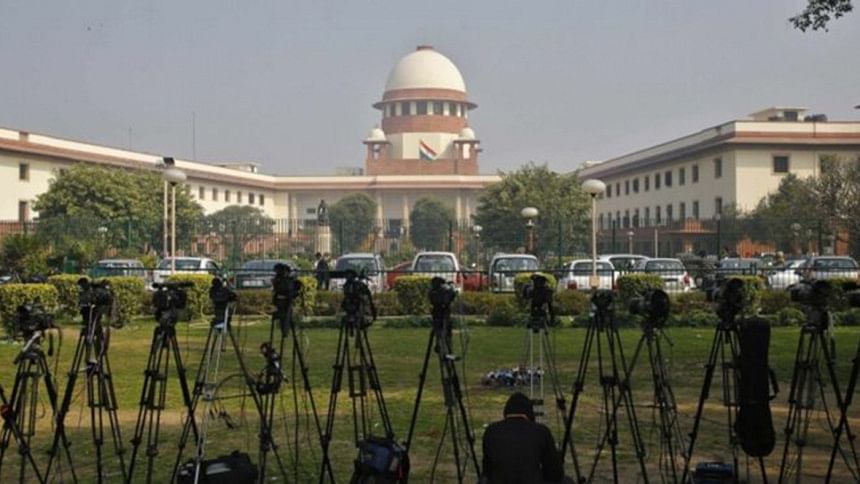India court strikes down law on judges' appointment

India's Supreme Court has struck down a new law that gave the government more say in appointing judges.
The court ruled that the present system of choosing judges by a collegium - essentially a group of five senior judges - would continue.
The new law wanted a panel of six - including Supreme Court judges and politicians - to make the appointments.
Correspondents say Friday's verdict sets up a potential confrontation between the judiciary and politicians.
In its ruling, the five-judge constitution bench, headed by Justice JS Khehar, said the law passed in April was "unconstitutional".
The law would have replaced the decades-old collegium system with a National Judicial Appointments Commission (NJAC).
It specified that the six-member NJAC would include the chief justice of India, two senior-most Supreme Court judges, the law minister and two "eminent persons" to be nominated by the chief justice, the prime minister and the leader of the opposition.
Those challenging the law had argued that it undermined the independence of the judiciary by giving the government a major role in the selection of judges.
The authorities on the other hand, had argued that there were defects in the collegium system, adding that the new law was aimed at ensuring that only meritorious people were selected as judges to the higher courts.

 For all latest news, follow The Daily Star's Google News channel.
For all latest news, follow The Daily Star's Google News channel. 



Comments